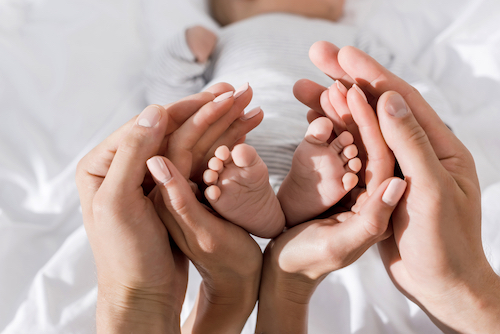Giving birth as an expat in Denmark is likely to be a positive experience. Maternity care within the public sector is of a high standard, and private healthcare is also excellent.As an expat, you will be eligible if you are covered by national health insurance either in Denmark or in your own country, if that country has an agreement with Denmark. There are a wide range of classes and activities both before birth and after: Denmark is a child-friendly nation.
How to decide on a birth plan
A birth plan is a list of what you would like to have happen in labour and beyond, written so that your doctor knows what your wishes and expectations might be. Things to think about include:
• where do you want to give birth?
• who do you want to have with you (e.g. your partner)?
• what kind of birth do you want (e.g. vaginal birth or a Caesarian)
• do you need any birthing aids?
• do you want pain relief, and if so, what kind?
• what kind of birthing environment would you prefer?
The midwife will usually draw up a pregnancy plan with you, and this will take into consideration factors such as whether this is your first pregnancy; your previous births and any difficulties that you have experienced; and any physical or mental health issues you might have.
You will also be offered free pre-natal classes, if you choose. The big hospitals with maternity units, such as Rigshospitalet, Herlev and Hvidovre, all offer classes for expectant mums.
Danish maternity care
If you are pregnant in Denmark, you will be covered by the state health system. You will be given a leaflet with information about pregnancy and the maternity system in Denmark. You will be entitled to around 10 examinations by your doctor and midwife leading up to the birth, with the first one taking place at nine weeks, and will also be given ultrasound scans and blood tests. You will normally be given your first ultrasound at 11-14 weeks and the second at 18-20 weeks.

The midwife will usually conduct slightly fewer examinations if this is not your first pregnancy, but you will be given additional checks if a problem is suspected. Remember to discuss any prescription medication with your doctor, as certain drugs may affect the course of your pregnancy.
Note that you can also request the services of an interpreter.
When you go into hospital, you can discuss any pain relieving options on your birth plan, from epidurals to massage, sterile water injections or acupuncture. Not all Danish hospitals provide these options, but some do.
If you need to have a Caesarean, most hospitals will allow your partner to be with you in the operating theatre. Most women in Denmark give birth in public hospitals but it is also possible to give birth at home, and water births have become increasingly popular.
How long you spend in hospital depends on the circumstances of the birth and the health of you and your baby, but if all is well and it is your first birth, you should be taken to a maternity ward (barselsgangen) or patient hotel within a couple of hours.

Your partner will usually be allowed to stay in the patient hotel overnight. Most women go home within 72 hours, but if necessary you will be admitted for longer. Hvidovre Hospital in Copenhagen, for example, runs a ‘maternity hotel’ for any pregnant woman regardless of income or status, for at least 2 days of care.
You will also be supplied with nappies and baby clothes at the hospital, so you don’t need to worry about taking your own.
At 4-5 days after the birth, you will be visited by the health visitor (sundhedsplejerske) if you have left hospital within 72 hours. Your baby will have a ‘heel test’ (a small sample of blood taken from the heel to check for any medical issues) and a hearing test. At 5-8 weeks after birth, you and your baby will also have an examination by your doctor. Subsequent visits by the health visitor will be agreed between you but usually take place every three months.
Breastfeeding is encouraged in Denmark but you can discuss this with your midwife if you have any concerns. You may also be automatically allocated to a mothers’ group: this is a common practice in Denmark, with groups of usually 4-6 new mothers who have given birth around the same time. As an expat, you may need to take language issues into consideration, however, and you can decline. Some English-speaking mothers’ groups operate on a waiting list, as not enough English-speaking mothers may be available at any given time.

An organization called LINK (Ladies in Denmark) runs activity programmes for English speakers. You might also find playgroups (kravleklub) at your local church; and at the library you can often find groups for new parents (barselcafes). Your local cinema might even run a morning session of films to which you can bring your baby!
Denmark’s provision for maternity and paternity leave is generous, although it does have certain conditions attached, mainly with regard to the amount of time for which you need to have been making national health contributions.
If you have been paying into the system, you should receive a combined 64 weeks of leave offered to both parents, although you won’t receive benefits for the whole of this time. The mother will be guaranteed 18 weeks at full pay. Depending on your personal circumstances, you could receive a maximum of DKK 4,355 per week before tax.
Will the baby be a Danish citizen?
Your baby will only be a Danish citizen if one of the parents is Danish. Otherwise it will belong to your own nationality.
Would you like to share your experience of life abroad with other readers? Answer the questions here to be featured in an interview!

